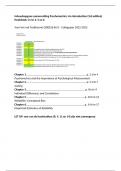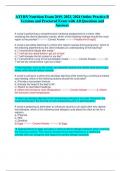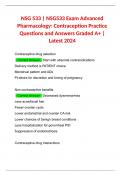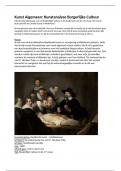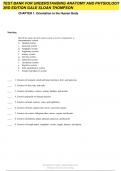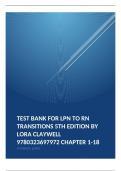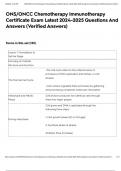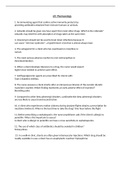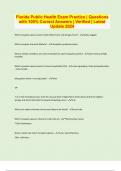Samenvatting
Gedeeltelijke samenvatting boek Psychometrics: An Introduction (3rd Edition, Furr) - Testtheorie (500216-B-5) 22-23
- Instelling
- Tilburg University (UVT)
- Boek
- Psychometrics
Gedeeltelijke samenvatting van het boek voor Testtheorie (500216-B-5), Psychometrics: An Introduction (Michael Furr, 3rd edition). Hoofdstuk 1, 2, 3, 5 en 6 zijn samengevat. Geschreven in collegejaar 2022 en 2023, gegeven door Jesper Tijmstra. In de inhoudsopgave staat wat de verplichte stof was da...
[Meer zien]
